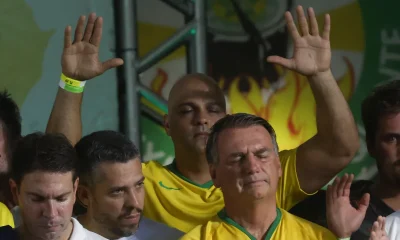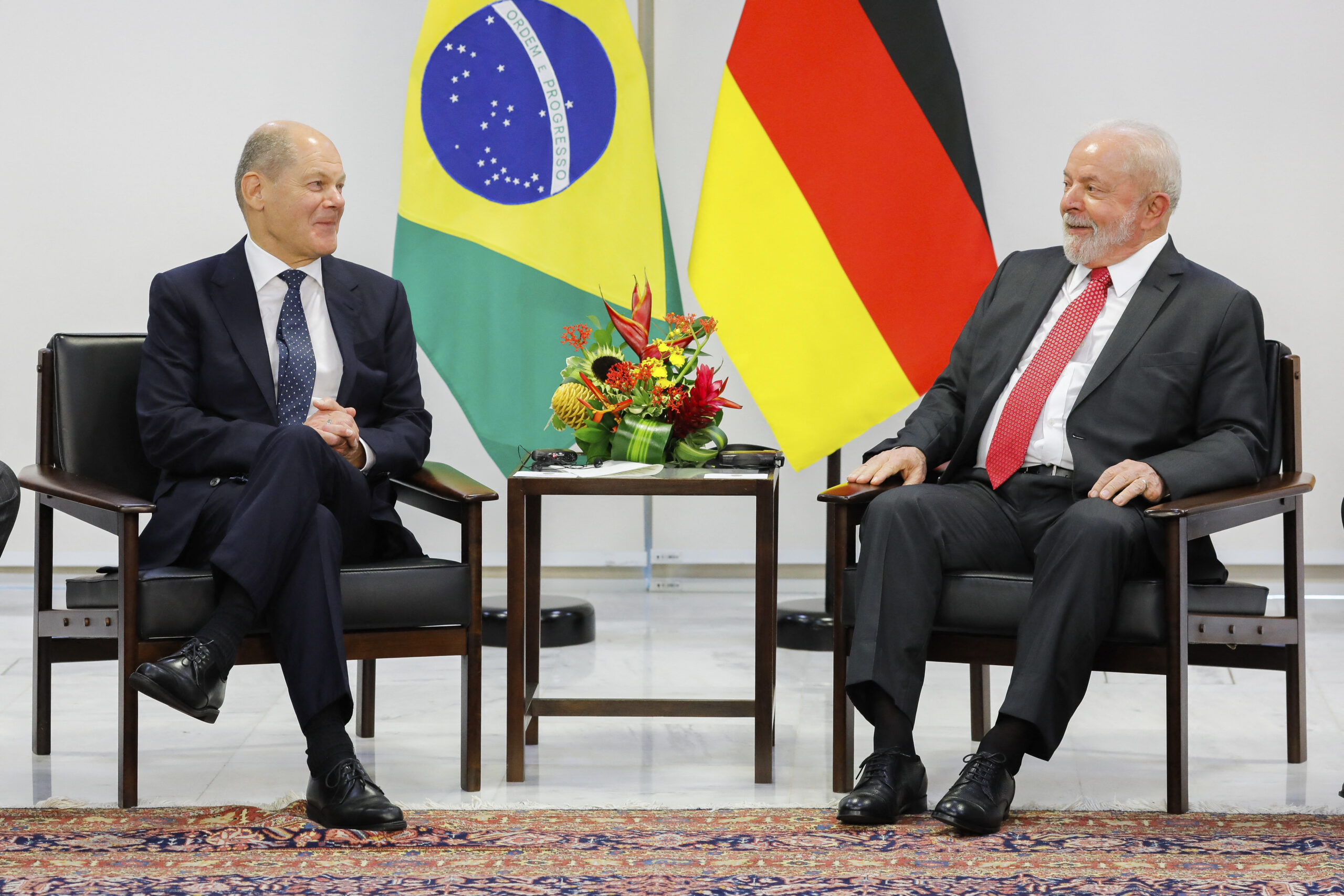International
Brazilian Amazon deforestation falls, but up 60 % under Bolsonaro

| By AFP |
Deforestation in the Brazilian Amazon destroyed an area bigger than Qatar in the 12 months through July, according to official figures released Wednesday, which showed a decline from the year before — but a sharp increase overall under outgoing President Jair Bolsonaro.
In the latest grim news on the world’s biggest rainforest, satellite monitoring showed 11 568 square kilometers (4 466 square miles) of forest cover was destroyed in the Brazilian Amazon from August 2021 to July 2022, according to national space agency INPE’s annual deforestation tracking program, PRODES.
The figure was a decrease of 11.3 percent from the year before, when INPE detected 13,038 square kilometers of deforestation — a 15-year high.
But it closed out four years of what environmentalists call disastrous management of the Amazon under the far-right Bolsonaro, whose successor, veteran leftist Luiz Inacio Lula da Silva, has vowed to work toward zero deforestation when he takes office on January 1.
Under agribusiness ally Bolsonaro, average annual deforestation rose by 59.5 percent from the previous four years, and by 75.5 percent from the previous decade, according to INPE figures.
“The Bolsonaro government was a forest-destroying machine… The only good news is that it’s about to end,” said Marcio Astrini, executive secretary of the Climate Observatory, a coalition of environmental groups.
“The devastation remains out of control. Jair Bolsonaro will hand his successor a filthy legacy of surging deforestation and an Amazon in flames,” he said in a statement, urging ex-president Lula (2003-2010) — who has faced criticism over his own environmental record — to show “zero tolerance” for environmental crimes.
Experts say the vast majority of the clear-cutting and fires erasing the Amazon is aimed at turning rainforest into farmland — especially for cattle ranches in Brazil, the world’s top beef exporter.
Activists accuse Bolsonaro of gutting Brazil’s environmental protection programs and encouraging the destruction with his pro-agribusiness and pro-mining policies.
“The Amazon is getting closer and closer to a tipping point,” Mariana Napolitano, science director at the World Wildlife Fund (WWF) Brazil office, said in a statement.
“Significantly reducing deforestation… is imperative for humankind in the face of the twin climate and nature crises the world is facing.”
International
Trump to decide soon on deportation exemptions for construction and farm workers
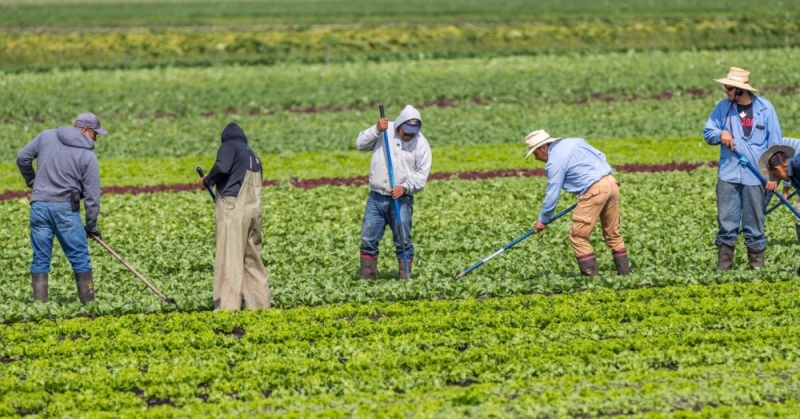
U.S. President Donald Trump stated on Tuesday in Florida that he will make a decision in the coming weeks regarding exemptions from deportations for workers in the construction and agriculture sectors.
Trump made these remarks to the media during a visit to the new migrant detention center, ‘Alligator Alcatraz,’ located in the middle of a wetland in Florida, the White House reported.
ICE (Immigration and Customs Enforcement) raids have targeted many of these workers, sparking fear among them and threatening to slow down two sectors that are vital to the U.S. economy.
In construction, 25.7% of workers are immigrants, and 14.1% of the total workforce nationwide is undocumented, according to the American Immigration Council.
In agriculture, the percentage of undocumented employees rises to 42%, according to data from the Department of Agriculture cited by the New York Times.
International
IDB plans $11 billion in sustainable financing to support countries facing currency risks

The Inter-American Development Bank (IDB) aims to unlock at least $11 billion in sustainable financing to help countries address challenges including natural disasters that strain their currencies and hinder private sector investment.
As the United States and other wealthier countries reduce official development assistance, multilateral lenders face pressure to find new ways to tackle issues such as climate change and biodiversity loss. During the Fourth International Conference on Financing for Development, IDB President Ilan Goldfajn stated that the measures adopted by the IDB are expected to inspire more private sector contributions, which is a key priority of the conference.
“We are not just announcing ideas; we are launching what the private sector is asking for: credible tools, scalable platforms, and real opportunities to invest with impact and confidence,” he added.
Support will include a new platform designed to help countries manage the risk of large swings in their national currencies that can deter international investors by making returns harder to predict. Based on a program in Brazil that has already attracted $8 billion from the private sector since its launch last year, the plan is to expand the concept to other regional economies over the next three years and at least double the amount mobilized.
Called FX EDGE, the platform will offer a credit line that activates if a currency drops sharply—a common problem during political or debt crises or after natural disasters—ensuring debtors can continue to service their loans in dollars or other foreign currencies.
The platform also aims to enable greater use of long-term currency hedging instruments, such as derivatives, through local banks and financial institutions, backed by the IDB’s credit rating.
International
Maduro’s government appeals to Vatican for help rescuing migrant children
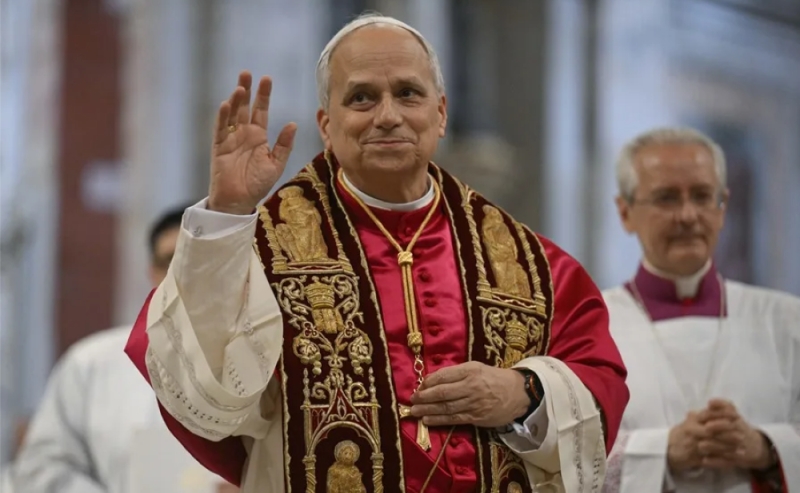
Este lunes, durante su programa semanal ‘Con Maduro +’, el mandatario venezolano anunció que pediría al sumo pontífice su ayuda para rescatar a 18 niños migrantes.
“Yo sé que el papa es un hombre que comprende estos temas. Le pido ayuda a la Iglesia católica, apostólica y romana, al papa León, para que la Iglesia católica de Estados Unidos y la Iglesia católica de El Salvador proteja a los migrantes y nos ayude con sus gestiones para rescatar a estos niños y a estas niñas”, indicó Maduro en el espacio transmitido por VTV.
Más temprano, Rodríguez había pedido al alto comisionado de la ONU para los Derechos Humanos, Volker Türk, y al coordinador residente de la ONU en Venezuela, Gianluca Rampolla, pronunciarse sobre este hecho y exigió a Washington devolver a los pequeños.
-
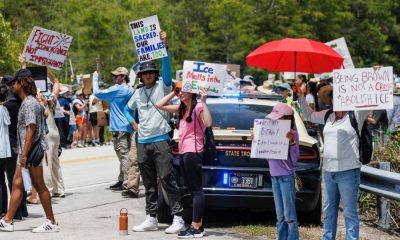
 International4 days ago
International4 days agoProtests erupt over Florida’s ‘Alligator Alcatraz’ migrant jail in the Everglades
-
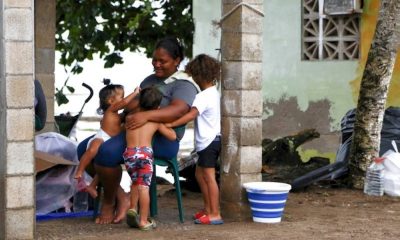
 Central America4 days ago
Central America4 days agoMigrants stranded in Panama amid US Policy crackdown and Darién gap barriers
-
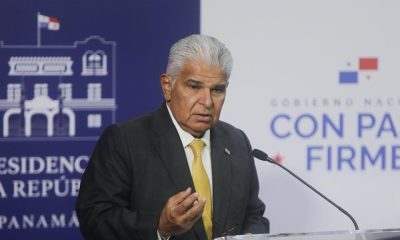
 Central America16 hours ago
Central America16 hours agoPanama’s President Mulino: “We are regaining international trust” to exit tax haven lists
-

 International4 days ago
International4 days agoTikTok sale advances as Trump reveals deal is in place
-
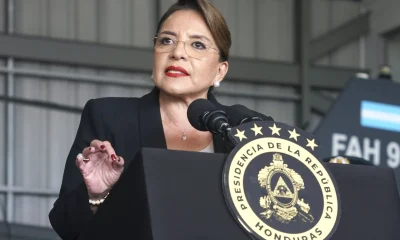
 Central America4 days ago
Central America4 days agoCastro to address FfD4 in Spain as Global Financial Reform takes center stage
-

 International2 days ago
International2 days agoSpain hits record 46°C in June amid scorching heatwave
-
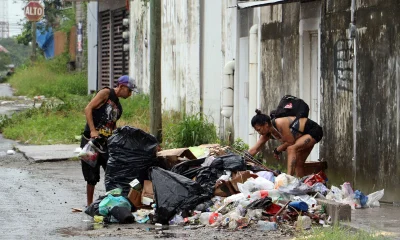
 International2 days ago
International2 days ago7 in 10 mexicans born poor stay poor, new report finds
-

 International2 days ago
International2 days agoTrump administration sues Los Angeles over sanctuary city policies
-
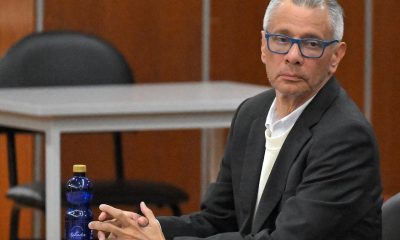
 International2 days ago
International2 days agoEcuador’s former VP Jorge Glas sentenced to 13 more years for corruption
-

 International1 day ago
International1 day agoThe White House insists that the United States remains in contact with Iran
-

 International1 day ago
International1 day agoThe US climate agency will lose access to key data for hurricane forecasting in July
-

 International1 day ago
International1 day agoThe Argentine justice declares Milei’s measure that limited the right to strike unconstitutional
-
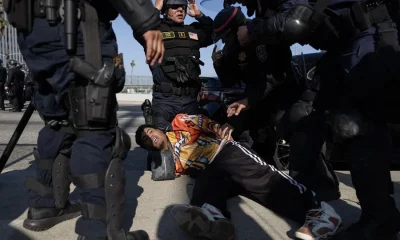
 International1 day ago
International1 day agoTrump sues Los Angeles for immigrant “sarture city” policies
-
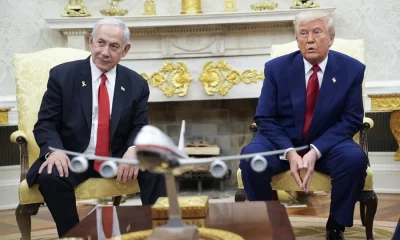
 International1 day ago
International1 day agoTrump will receive Netanyahu at the White House next week
-

 International16 hours ago
International16 hours agoTrump to decide soon on deportation exemptions for construction and farm workers
-
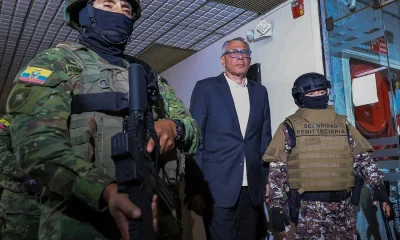
 International1 day ago
International1 day agoFormer Correísta vice president Jorge Glas, sentenced to 13 years in prison for embezzlement in Ecuador
-
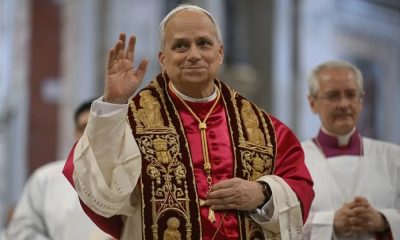
 International16 hours ago
International16 hours agoMaduro’s government appeals to Vatican for help rescuing migrant children
-

 International1 day ago
International1 day agoAn investigation by the Trump Administration concludes that Harvard violated the rights of Jewish students
-

 International16 hours ago
International16 hours agoIDB plans $11 billion in sustainable financing to support countries facing currency risks
-
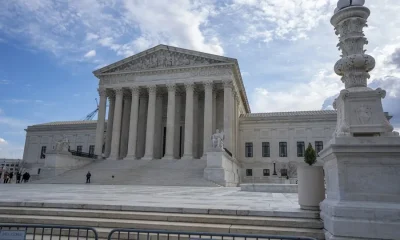
 International1 day ago
International1 day agoThe US Supreme Court will address the reduction of spending limits of parties in campaigns
-
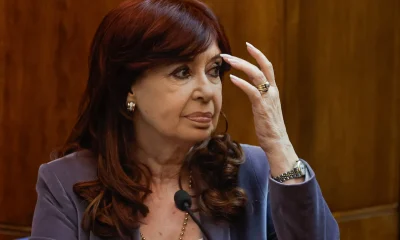
 International16 hours ago
International16 hours agoFormer argentine president seeks brazilian leader’s visit amid house arrest



















































